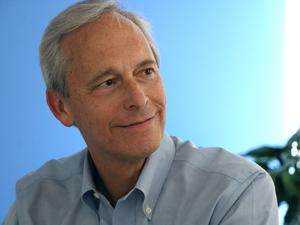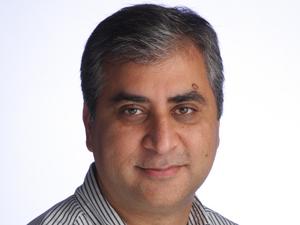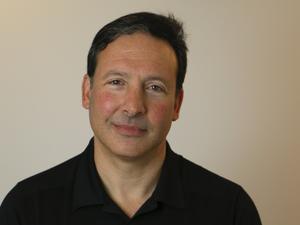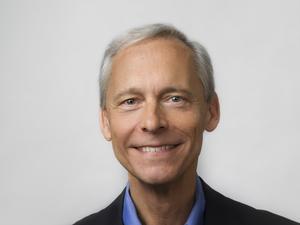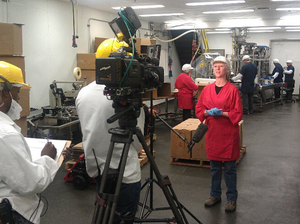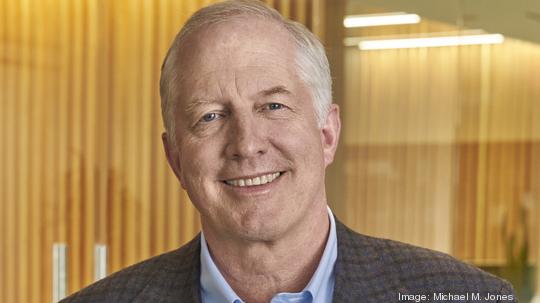
Portland private equity firm Endeavour Capital has raised its eighth and largest fund to date, at $850 million.
It’s one of the largest funds ever for the state, eclipsing the firm’s last fund, unveiled in 2015 at $775 million.
Endeavour, which is 30 years old this year, backs lower middle market companies in the Western U.S. valued between $25 million and $300 million. The team seeks investments in food and consumer, technology and business services, industrials and health care. Past investments include New Seasons, Vigor Industries, PacStar Communications and PK.
The firm expects to close its first investment out of Fund VIII this summer.
Unlike some other private equity firms, Endeavour says it doesn’t rely on leverage or financial engineering to make deals successful. The firm typically works closely with management and is focused on growing revenue as opposed to growing by cutting expenses.
We chatted with co-founder and Managing Director John von Schlegell about the new fund, and the last three decades of investing in the Pacific Northwest.
You started raising Fund VIII last year, before the Covid-19 pandemic. How did that affect raising this fund? Well, the initial shock that everybody in America had about where’s this going to end, after that first 30 to 60 days, most of our investors — they’re universities, state pensions, foundations — they have ongoing annual targets of the amount of money they want to put into alternative assets like venture capital and private equity, everybody knew that this too shall end. It’s a long-term business, not quarter-to-quarter.
When people say they’re in (to invest in the fund) we don’t take any money or charge any fees, or call any capital until Fund VII was totally committed. (Investors) knew they had lead time on that. So actually, after a couple of months of delay, it just kind of went back to, I wouldn’t say business as usual, because it wasn’t.
Can you tell me about the performance of Fund VII? We don’t comment a lot on that both for SEC reasons and for other reasons. But we’ve had some very exciting, early exits. Funds take five to 10 years to gestate and develop, but we’re very pleased with how Fund VII is going. And obviously funding wouldn’t get raised if the limited partners didn’t agree with that assessment.
The announcement mentioned select new investors in Fund VIII. What was your criteria for them? Private equity has gotten much more institutional than when we started 30 years ago. And we’re looking for limited partners that are in it for the long term. It’s not like the hot money program. Our strategy is not big on using lots of leverage and debt, we’re not big into getting in financial engineering and getting out real quick. So, investors start to self-select.
You started Endeavour in 1991. Has the reason for the fund changed over 30 years? We saw a real absence of resident capital, not only in Oregon, but in the Pacific Northwest. We had small enough funds in the early days that most of our deals were done in Washington and Oregon, and then we’ve expanded in California and the mountain states, as our funds have gotten a little bit bigger. But it’s been the same. There’s still very few resident funds in the Northwest. What has changed is there are more family offices, more private equity firms trying to get out to the West, even if they’re not based here.
Looking at the Northwest business landscape over the last 30 years, what has surprised you? I’ve been pleasantly surprised to see the number of software companies and people that want to escape California and Silicon Valley and have come up here. We have a busy technology focus with a couple of our younger partners. They aren’t doing startups, but companies that are profitable and have a chance of really going to that next level.
As you evaluate companies, what do you look for that gets you excited? We look for real franchise value. In other words, they have something — it could be as simple as they just are better at service. It’s not like they have an intellectual property on some software program that nobody else has, it’s just that they have customer relationships, or a way of manufacturing or process and franchise. And if you can get that magic of working together, you can really upgrade companies. Over 30 years, our companies, on average, double earnings under our stewardship with them.
You talk to a lot of management teams. What are common pitfalls you see founders stumble into when pitching? We have a phrase called Founders Disease. What that means is that a lot of times founders have done things a lot of people can't do, so you have to admire founders who started a company. They start a company, they get it profitable, they create a franchise. But where founders disease comes in is when it's time to go to that next level. And it's time to maybe share the decision making or delegate (or bring in experts). Founders Diseases is like, "you know, we tried that once a way back when it didn't work" or "I really like my CFO," but we know the CFO is really a bookkeeper.
JOHN VON SCHLEGELL
Title: Co-founder and managing director, Endeavour Capital
When he joined: 1991
Expertise: Has worked with companies in the transportation and logistics, specialty retail, business services, niche manufacturing and food and consumer industries
Boards: Berkeley Research Group, K2 Insurance Services, Impact Fulfillment Services, DTC Logistics and Willamette Valley Co.
Education: A.B. from Stanford University and an M.B.A. from Stanford Graduate School of Business
